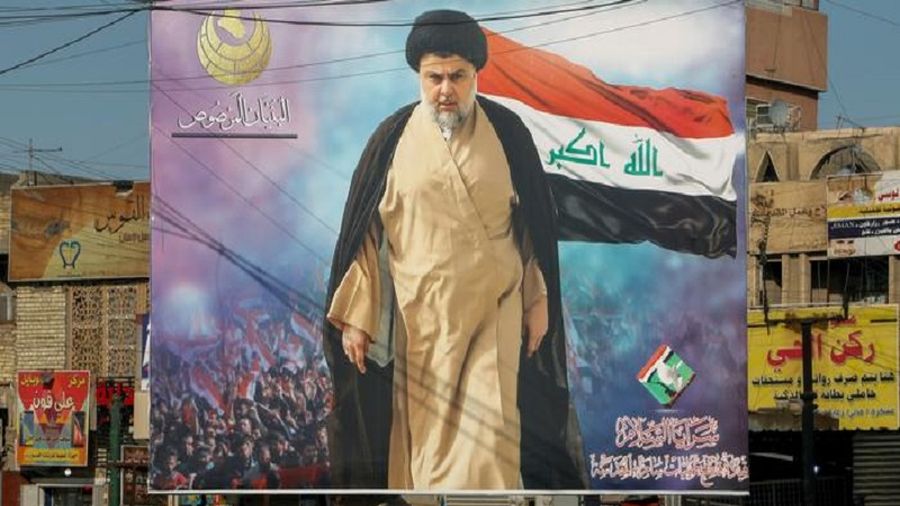What Do the Results of the Parliamentary Elections in Iraq Testify to?
Given this political alignment in Iraq, a faint outline of an inclusive government could emerge in the near future. This scenario is possible if the Shiite political groups agree on the representation of all groups of political influence.
The parliamentary elections held in Iraq on October 10, 2021 led to significant transformations in the political reality of the country, based on the content of the electoral reforms, thanks to which these elections took place. The defeated Shiite political alliances expressed strong opposition to the vote, which escalated tensions between them and the Iraqi government. This circumstance became the main reason for criticizing the Prime Minister of Iraq, Mustafa al-Kazimi, who nevertheless continues to fight for influence on the political situation in the hope of strengthening his status as a “triumphant”.
It is worth noting that the postponement of the Iraqi parliamentary elections to October 10, 2021 was the result of a popular uprising that began in October 2019 and led to the overthrow of the head of the national government, Adel Abdul Mahdi. In this regard, the formation of a new representative body of state power has become the main priority of the new head of the transitional cabinet of ministers, Mustafa al-Kazimi. For this reason alone, a series of political reforms began in Iraq aimed at preparing an appropriate platform for holding a popular vote. In particular, a new procedure for the nomination of candidates was introduced with the participation of several electoral districts. In addition, independent candidates, as well as political parties formed after October 2019, received the right to run. However, the most important innovation was that the current head of the transitional government refused to participate in the parliamentary elections due to the agreements reached with Shiite political groups.
As a result of the reforms carried out, the results of the elections were quite unexpected, especially with regard to the distribution of deputy mandates among political parties. The most notable changes occurred in the bloc of Muqtada al-Sadr, which won 73 seats in parliament, while the opposition al-Fateh alliance won only 17 seats. Representation of the faction headed by the former head of the Iraqi government Haider al-Abadi and the leader of the Al-Hakmiya movement Ammar al-Hakim has significantly decreased. In addition, the loss of electoral confidence led to a reduction in the positions of the National Treaty alliance under the auspices of the head of the People’s Mobilization Directorate Faleh al-Fayyad, as well as the leaders of the Shiite groups Bahi al-Araji, Abdul-Hussein Abtan and Adnan al-Zarfi.
The Sunni political camp has also undergone significant changes. In particular, the alliance, led by Speaker of Parliament Muhammad al-Hablusi, won 37 seats. At the same time, other representatives of the Sunnis, such as Sheikh Khamis al-Khanjar, Osama al-Nujaifi, Salim al-Jiburi, Salman al-Jumaili, Qasem al-Fahdawi, Dafer al-Ani, Muhammad al-Karbuli, Ahmed al-Masari and Rashid al-Azzawi, contrary to their own expectations, received minimal support in the elections.
The reason for such a sharp decline in the role of the Sunni camp is that its representatives reacted rather poorly to popular appeals and almost completely distanced themselves from the electoral struggle, which was especially noticeable in the province of Baghdad, where Shiite leaders were able to conduct a fairly professional election campaign, thus eclipsing, their competitors.
Thus, the active position of Muqtada al-Sadr regarding the defragmentation of constituencies in proportion to the content of his social domination, served as the reason for the strengthening of the influence of his movement in the Iraqi parliament. Nevertheless, the controversial role that the militia began to play in Baghdad led to the fact that the Al-Fateh alliance, consisting mainly of leaders of armed groups who act from positions of military resistance to any attempts to pressure the Iraqi electorate, received relatively small number of votes.
It is also worth noting that the victory of the Shiites in Iraq was dictated by their promises not to create a foundation for general enmity in the country. Moreover, they came up with an initiative for a relative normalization of relations with the West and the United States, in particular. This would make it possible to focus the main attention of the Iraqi leadership on solving their own national problems, without being distracted by the sorting out of relations with Washington. This “conciliatory” position of most of Iraq’s Shiite leaders has become the main motive for the Iraqi electorate, which is simply tired of endless wars and internal conflicts that devastate the country’s resources.
Given this political alignment in Iraq, a faint outline of an inclusive government could emerge in the near future. This scenario is possible if the Shiite political groups agree on the representation of all groups of political influence. However, such a scenario is unlikely, but it is by no means excluded, given that Muqtada al-Sadr is currently showing a willingness to engage in dialogue with competitors, although this dialogue is unlikely to take place if the leader of the Saurun movement feels a chance to take the post of prime minister. Therefore, most likely, the main struggle will unfold between Mustafa al-Kazimi and Muqtad al-Sadr, who is now only trying to win over the largest number of former rivals in order to organize a new attempt at a popular uprising with their help.
Anticipating such a likely outcome of the political struggle, the current head of Iraq’s transitional government will try to significantly strengthen his power by putting military pressure on competitors. Moreover, the recent attempt to assassinate the Prime Minister provided him with a unique opportunity, under the pretext of an “anti-terrorist operation”, to liquidate or substantially squeeze out most of the centers of political opposition, including the movement of Muqtada al-Sadr. In any case, the leader of the “Saurun” movement is very risky, fighting the head of the Iraqi government. Thus, Washington is unlikely to allow the overthrow of the loyal Mustafa al-Kazimi. As a result, any attempt by a Shiite theologian to question the activities of the head of the Iraqi government or organize new acts of sabotage against him may provoke a new round of social violence in Iraq.







